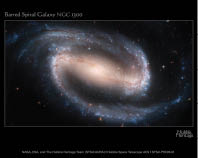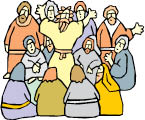
In the 40 years that this journal has been in existence, we have had
many articles dealing with the evidence that chance is not the cause of
what we see in the natural world. Our use of the word “chance” in these
articles has not always been clear, and some of our critics have
justifiably complained about the use of the word. My response has
always been that it means the process is without direction or purpose.
The issue has been whether we can statistically and rationally believe
that all we see around us in the natural world came to be spontaneously
with no direction or intelligence involved in the process. The
philosopher Peter van Inwagen said it this way: “The event of the state
of affairs is without purpose or significance; it is not a part of
anyone’s plan; it serves no one’s end; and it might very well not have
been.” (ASA Journal, March
2009, page 3).
 The role of chance can actually be quite complex, and in
discussions of natural selection there are many different opinions
about how chance operates. A brown animal has a white offspring in an
area that becomes covered with snow. The brown animal is eaten by a
predator because he is easily seen, but the white animal escapes
because he is well camouflaged. What is the role of chance in this
situation? Did God miraculously cause the white animal to be born white
because God had a plan for that particular animal, or is this whole
situation a matter of chance? On a broader plain, does God micromanage
everything in nature, or is there another way He functions that
incorporates chance?
The role of chance can actually be quite complex, and in
discussions of natural selection there are many different opinions
about how chance operates. A brown animal has a white offspring in an
area that becomes covered with snow. The brown animal is eaten by a
predator because he is easily seen, but the white animal escapes
because he is well camouflaged. What is the role of chance in this
situation? Did God miraculously cause the white animal to be born white
because God had a plan for that particular animal, or is this whole
situation a matter of chance? On a broader plain, does God micromanage
everything in nature, or is there another way He functions that
incorporates chance?
To get you thinking about this, let us assume we are watching a
football game between two teams with identical talent at all positions.
One team punts  the football and the kick sends it
forty yards down field. The ball lands on its pointed end and bounces
backwards towards the punter hitting a player who is blocking for the
receiving team in the back and causing the ball to bounce high in the
air. When it comes down it lands in the hands of a defensive player
covering the kick who catches it and allowing the punting team to
eventually score a touchdown. No fan of football would suggest that the
punter did this based on his skill. We have the word “luck” to describe
the bounce of the ball, but the fact is that how the ball lands to
cause it to bounce in a most unusual way is both a designed and a
chance-driven situation. The scenario just described has in fact
happened in a variety of different ways in football games. One of the
reasons people like to watch football games is the unpredictable nature
of the game.
the football and the kick sends it
forty yards down field. The ball lands on its pointed end and bounces
backwards towards the punter hitting a player who is blocking for the
receiving team in the back and causing the ball to bounce high in the
air. When it comes down it lands in the hands of a defensive player
covering the kick who catches it and allowing the punting team to
eventually score a touchdown. No fan of football would suggest that the
punter did this based on his skill. We have the word “luck” to describe
the bounce of the ball, but the fact is that how the ball lands to
cause it to bounce in a most unusual way is both a designed and a
chance-driven situation. The scenario just described has in fact
happened in a variety of different ways in football games. One of the
reasons people like to watch football games is the unpredictable nature
of the game.
The point of this example is that there are things intelligently built
into the game of football that allow chance to function within certain
limits. The shape of the football was critical to the example in the
last paragraph. If the ball was a soccer ball then such a backwards
bounce could not happen in the same way. The fact that a team will punt
is designed into the rules of the game to make that part of the game
interesting. The rule that says if any player on the receiving team
touches the ball in any way it  becomes a free ball also
was intelligently drawn up to allow such a scenario to exist. The shape
of the football field and the rules for blocking, are also involved in
this example. What happened had a lot of chance involved in it, the
actual way the game comes out is not controlled by the people
participating and watching, and that is why we play the game. The game
and the equipment are designed to allow chance to operate. There are
countless other examples of this principle that could be given. The
entire gambling industry is based on the fact that the system is
designed so that the players in gambling lose and the owner of the
gambling system wins. However, each individual game is a matter of
chance functioning within a prescribed set of rules to ultimately make
the house win and the player lose—even if they win a few games along
the way.
becomes a free ball also
was intelligently drawn up to allow such a scenario to exist. The shape
of the football field and the rules for blocking, are also involved in
this example. What happened had a lot of chance involved in it, the
actual way the game comes out is not controlled by the people
participating and watching, and that is why we play the game. The game
and the equipment are designed to allow chance to operate. There are
countless other examples of this principle that could be given. The
entire gambling industry is based on the fact that the system is
designed so that the players in gambling lose and the owner of the
gambling system wins. However, each individual game is a matter of
chance functioning within a prescribed set of rules to ultimately make
the house win and the player lose—even if they win a few games along
the way.
To what extent does God use chance in His processes? In the example at
the start of this article with the brown and white animals, does God
set up a system which allows life to survive when the climate changes
the environment, or does God personally strike each animal He wants to
survive with a change that allows survival when the environment
changes? Why are there billions of galaxies, each having billions of
stars with massive numbers of planets orbiting those stars? Why do we
have comets, asteroids, meteoroids, and Oort cloud objects orbiting the
Sun which appear to be leftovers from the process of the creation of
the solar system?
It appears that God created a system in very much the same way that we
set up a football game. In the football game the ultimate result could
be said to be a winning team. A physical system (the field) is created
and designed. A set of rules for the conduct of the game is put in
place. The clock is started and the teams play within the constraints
of the designed system in which they find themselves. Ultimately, a
winning team is produced. A set of experts could have selected a
winning team without the game being played by looking at the physical
characteristics of all of the players involved, but the beauty of the
game of football is that sometimes the best team physically is not the
winning team.
 In the cosmological example, God has created space and
time—the playing field. He has taken energy and in a bewildering
process has placed it in the space/time field with a set of carefully
designed rules. We have come to understand that those rules operate at
two levels—one set of rules for the very small (the quantum mechanics
world) and a different set of rules for the physical world in which we
exist. The Bible summarizes all of this in the simple statement “In the
beginning God created the heavens and the earth.” The actual start of
the creation process does not involve chance. The system that is
ultimately produced (the heavens and the earth) is accomplished because
of a designed system within which chance operates leading to God’s
intended result. Some theologians may object to this suggestion. They
want God to micromanage the creation process so that the one result
(the heavens and the earth) are produced by continuous miraculous
activity with no wasted matter or energy and nothing that does not
participate in man’s environment.
In the cosmological example, God has created space and
time—the playing field. He has taken energy and in a bewildering
process has placed it in the space/time field with a set of carefully
designed rules. We have come to understand that those rules operate at
two levels—one set of rules for the very small (the quantum mechanics
world) and a different set of rules for the physical world in which we
exist. The Bible summarizes all of this in the simple statement “In the
beginning God created the heavens and the earth.” The actual start of
the creation process does not involve chance. The system that is
ultimately produced (the heavens and the earth) is accomplished because
of a designed system within which chance operates leading to God’s
intended result. Some theologians may object to this suggestion. They
want God to micromanage the creation process so that the one result
(the heavens and the earth) are produced by continuous miraculous
activity with no wasted matter or energy and nothing that does not
participate in man’s environment.
The problem with such a suggestion is that the evidence does not
support it. Within our own solar system we are seeing that there is a
massive amount of matter outside the orbit of Pluto circling the Sun.
We now have over 300 planets orbiting other stars with more
observations taking place daily as our instruments get better. We have
100 billion stars in our galaxy and literally billions of galaxies that
we can see and measure strewn across galactic space. The cosmos is far
bigger and far grander than we imagined even 10 years ago, and our
concept of God and His actions and processes should grow as well. It is
not that God has changed, but our information and ability to understand
has grown.
The more we understand about the genomes of living things, the more we
see pattern and design in what controls the physical characteristics of
an organism. This design feature allows life to survive on a changing
earth, but it is clear that some forms of life have become extinct when
environmental conditions exceeded the limits of the characteristics of
the individual. A current possible example is that the warming of the
earth may cause the polar bear to become extinct. Forms of life do
become extinct on a regular basis, and that is a part of the plan,
driven by chance, not because God individually kills off every bear.
Even the conception of a child can be viewed by this approach. A woman
has many eggs and the one that is fertilized has to be at the right
place at the right time for conception to occur. Large numbers of
sperm, each carrying different DNA, try to penetrate the egg to
fertilize it, but only one does. Does God select the one sperm and the
one egg that ultimately becomes a child? If your answer is “yes” then
what do you tell a couple that has a baby born with massive,
genetically caused birth defects? What do you say when those defects
take the baby’s life a few moments after birth, or send it through a
life of pain and disability while financially ruining the family? These
are difficult questions, but perhaps we create our own theological
problems by placing God in the position of direct control that He in
fact does not exert.
If we understand this methodology of God, it may not only help us in
understanding why there are multiple stars, galaxies, debris in space,
and forms of life that come and go; but we may also be better equipped
to understand some historical and spiritual matters as well. Why has
God allowed everything from the Crusades to slavery to Hitler to the Ku
Klux Klan? Why did He not just strike the errant leaders dead and
eliminate the misery that they cause? Why allow chance to produce all
kinds of leaders who in turn drive politics. The consequences of not
following God’s way of doing things cannot be denied when you look at
the lessons of history.
 Unity among believers is a basic theme of the whole New
Testament. Jesus and the apostles prayed and pleaded for our unity over
and over (see John
13:22–35; 15:12–17;
1 John 4:7–12; 2 John 5). The fact is
that in modern times especially, those who claim to be followers of
Jesus are anything but united. God has given us a method of being
united and a number of things that can help us achieve that unity. All
acts of worship are designed to help us become united. Singing and
praying together moves us toward unity. God does not force unity upon
us, but as we see the results of not following God’s plan and continue
to introduce human substitutes for what God has commanded, we continue
to drift into increasing disunity. His ultimate will that we all be one
as Jesus is one with God (John
17:22) will happen, but many hard lessons seem to be necessary
before we are willing to do what God has called us to do. God’s method
of leading us when we err is not to pound us into submission but to
allow us by trial and error to see the wisdom of what God calls us to
and to see that our own methods do not work.
Unity among believers is a basic theme of the whole New
Testament. Jesus and the apostles prayed and pleaded for our unity over
and over (see John
13:22–35; 15:12–17;
1 John 4:7–12; 2 John 5). The fact is
that in modern times especially, those who claim to be followers of
Jesus are anything but united. God has given us a method of being
united and a number of things that can help us achieve that unity. All
acts of worship are designed to help us become united. Singing and
praying together moves us toward unity. God does not force unity upon
us, but as we see the results of not following God’s plan and continue
to introduce human substitutes for what God has commanded, we continue
to drift into increasing disunity. His ultimate will that we all be one
as Jesus is one with God (John
17:22) will happen, but many hard lessons seem to be necessary
before we are willing to do what God has called us to do. God’s method
of leading us when we err is not to pound us into submission but to
allow us by trial and error to see the wisdom of what God calls us to
and to see that our own methods do not work.
It would be logical at this point to ask if God ever acts or has acted
directly and instantly in affecting His will. Certainly Jesus acted
directly when He accomplished miracles. In reality there are miracles
in the Old Testament in which God acted directly. God did not “zap” the
Israelites into the promised land. However, when He needed to get their
attention in a matter or affect a solution to an immediate crisis He
did act directly, such as the plagues in Egypt, Sodom and Gomorrah, and
the deadly serpents in the wilderness. In today’s world we still seem
to expect God to function by zapping solutions into our lives, when in
reality He usually functions by allowing us the freedom to reject Him
and choose what by chance comes our way. We can reduce the effects of
chance in our lives by following God’s will in the choices we make. We
know we will die and God has promised us that, but how we will die is
not dictated by God. Human violence, diseases caused by man-made
chemicals, foolish choices made by us are not directly caused by God.
We can pray for God to act directly in our lives, and in spiritual
matters God has promised that He will grant our requests (see Matthew 7:7–8; Luke 11:9–10; John 11:22;  14:13–14;
15:7, 16). The answers do not
always come the way we expect, but God does answer. We do not have the
knowledge or the wisdom to always make good choices about options that
come our way, and chance may put us in some difficult situations. The
beauty of the relationship we have with Jesus is that He understands
and that ultimately we will be in heaven. Chance and its consequences
will not exist when we get there. We can know for sure that the most
important thing in our lives is guaranteed.
14:13–14;
15:7, 16). The answers do not
always come the way we expect, but God does answer. We do not have the
knowledge or the wisdom to always make good choices about options that
come our way, and chance may put us in some difficult situations. The
beauty of the relationship we have with Jesus is that He understands
and that ultimately we will be in heaven. Chance and its consequences
will not exist when we get there. We can know for sure that the most
important thing in our lives is guaranteed.
Back to Contents
Does God Exist?, NovDec09.


 The role of chance can actually be quite complex, and in
discussions of natural selection there are many different opinions
about how chance operates. A brown animal has a white offspring in an
area that becomes covered with snow. The brown animal is eaten by a
predator because he is easily seen, but the white animal escapes
because he is well camouflaged. What is the role of chance in this
situation? Did God miraculously cause the white animal to be born white
because God had a plan for that particular animal, or is this whole
situation a matter of chance? On a broader plain, does God micromanage
everything in nature, or is there another way He functions that
incorporates chance?
The role of chance can actually be quite complex, and in
discussions of natural selection there are many different opinions
about how chance operates. A brown animal has a white offspring in an
area that becomes covered with snow. The brown animal is eaten by a
predator because he is easily seen, but the white animal escapes
because he is well camouflaged. What is the role of chance in this
situation? Did God miraculously cause the white animal to be born white
because God had a plan for that particular animal, or is this whole
situation a matter of chance? On a broader plain, does God micromanage
everything in nature, or is there another way He functions that
incorporates chance? the football and the kick sends it
forty yards down field. The ball lands on its pointed end and bounces
backwards towards the punter hitting a player who is blocking for the
receiving team in the back and causing the ball to bounce high in the
air. When it comes down it lands in the hands of a defensive player
covering the kick who catches it and allowing the punting team to
eventually score a touchdown. No fan of football would suggest that the
punter did this based on his skill. We have the word “luck” to describe
the bounce of the ball, but the fact is that how the ball lands to
cause it to bounce in a most unusual way is both a designed and a
chance-driven situation. The scenario just described has in fact
happened in a variety of different ways in football games. One of the
reasons people like to watch football games is the unpredictable nature
of the game.
the football and the kick sends it
forty yards down field. The ball lands on its pointed end and bounces
backwards towards the punter hitting a player who is blocking for the
receiving team in the back and causing the ball to bounce high in the
air. When it comes down it lands in the hands of a defensive player
covering the kick who catches it and allowing the punting team to
eventually score a touchdown. No fan of football would suggest that the
punter did this based on his skill. We have the word “luck” to describe
the bounce of the ball, but the fact is that how the ball lands to
cause it to bounce in a most unusual way is both a designed and a
chance-driven situation. The scenario just described has in fact
happened in a variety of different ways in football games. One of the
reasons people like to watch football games is the unpredictable nature
of the game. becomes a free ball also
was intelligently drawn up to allow such a scenario to exist. The shape
of the football field and the rules for blocking, are also involved in
this example. What happened had a lot of chance involved in it, the
actual way the game comes out is not controlled by the people
participating and watching, and that is why we play the game. The game
and the equipment are designed to allow chance to operate. There are
countless other examples of this principle that could be given. The
entire gambling industry is based on the fact that the system is
designed so that the players in gambling lose and the owner of the
gambling system wins. However, each individual game is a matter of
chance functioning within a prescribed set of rules to ultimately make
the house win and the player lose—even if they win a few games along
the way.
becomes a free ball also
was intelligently drawn up to allow such a scenario to exist. The shape
of the football field and the rules for blocking, are also involved in
this example. What happened had a lot of chance involved in it, the
actual way the game comes out is not controlled by the people
participating and watching, and that is why we play the game. The game
and the equipment are designed to allow chance to operate. There are
countless other examples of this principle that could be given. The
entire gambling industry is based on the fact that the system is
designed so that the players in gambling lose and the owner of the
gambling system wins. However, each individual game is a matter of
chance functioning within a prescribed set of rules to ultimately make
the house win and the player lose—even if they win a few games along
the way. In the cosmological example, God has created space and
time—the playing field. He has taken energy and in a bewildering
process has placed it in the space/time field with a set of carefully
designed rules. We have come to understand that those rules operate at
two levels—one set of rules for the very small (the quantum mechanics
world) and a different set of rules for the physical world in which we
exist. The Bible summarizes all of this in the simple statement “In the
beginning God created the heavens and the earth.” The actual start of
the creation process does not involve chance. The system that is
ultimately produced (the heavens and the earth) is accomplished because
of a designed system within which chance operates leading to God’s
intended result. Some theologians may object to this suggestion. They
want God to micromanage the creation process so that the one result
(the heavens and the earth) are produced by continuous miraculous
activity with no wasted matter or energy and nothing that does not
participate in man’s environment.
In the cosmological example, God has created space and
time—the playing field. He has taken energy and in a bewildering
process has placed it in the space/time field with a set of carefully
designed rules. We have come to understand that those rules operate at
two levels—one set of rules for the very small (the quantum mechanics
world) and a different set of rules for the physical world in which we
exist. The Bible summarizes all of this in the simple statement “In the
beginning God created the heavens and the earth.” The actual start of
the creation process does not involve chance. The system that is
ultimately produced (the heavens and the earth) is accomplished because
of a designed system within which chance operates leading to God’s
intended result. Some theologians may object to this suggestion. They
want God to micromanage the creation process so that the one result
(the heavens and the earth) are produced by continuous miraculous
activity with no wasted matter or energy and nothing that does not
participate in man’s environment. Unity among believers is a basic theme of the whole New
Testament. Jesus and the apostles prayed and pleaded for our unity over
and over (see John
13:22–35; 15:12–17;
1 John 4:7–12; 2 John 5). The fact is
that in modern times especially, those who claim to be followers of
Jesus are anything but united. God has given us a method of being
united and a number of things that can help us achieve that unity. All
acts of worship are designed to help us become united. Singing and
praying together moves us toward unity. God does not force unity upon
us, but as we see the results of not following God’s plan and continue
to introduce human substitutes for what God has commanded, we continue
to drift into increasing disunity. His ultimate will that we all be one
as Jesus is one with God (John
17:22) will happen, but many hard lessons seem to be necessary
before we are willing to do what God has called us to do. God’s method
of leading us when we err is not to pound us into submission but to
allow us by trial and error to see the wisdom of what God calls us to
and to see that our own methods do not work.
Unity among believers is a basic theme of the whole New
Testament. Jesus and the apostles prayed and pleaded for our unity over
and over (see John
13:22–35; 15:12–17;
1 John 4:7–12; 2 John 5). The fact is
that in modern times especially, those who claim to be followers of
Jesus are anything but united. God has given us a method of being
united and a number of things that can help us achieve that unity. All
acts of worship are designed to help us become united. Singing and
praying together moves us toward unity. God does not force unity upon
us, but as we see the results of not following God’s plan and continue
to introduce human substitutes for what God has commanded, we continue
to drift into increasing disunity. His ultimate will that we all be one
as Jesus is one with God (John
17:22) will happen, but many hard lessons seem to be necessary
before we are willing to do what God has called us to do. God’s method
of leading us when we err is not to pound us into submission but to
allow us by trial and error to see the wisdom of what God calls us to
and to see that our own methods do not work. 14:13–14;
15:7, 16). The answers do not
always come the way we expect, but God does answer. We do not have the
knowledge or the wisdom to always make good choices about options that
come our way, and chance may put us in some difficult situations. The
beauty of the relationship we have with Jesus is that He understands
and that ultimately we will be in heaven. Chance and its consequences
will not exist when we get there. We can know for sure that the most
important thing in our lives is guaranteed.
14:13–14;
15:7, 16). The answers do not
always come the way we expect, but God does answer. We do not have the
knowledge or the wisdom to always make good choices about options that
come our way, and chance may put us in some difficult situations. The
beauty of the relationship we have with Jesus is that He understands
and that ultimately we will be in heaven. Chance and its consequences
will not exist when we get there. We can know for sure that the most
important thing in our lives is guaranteed.